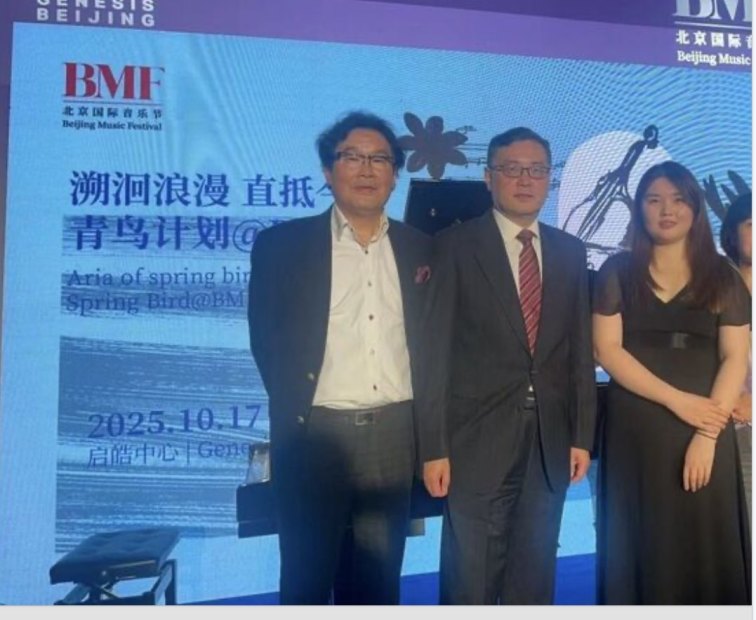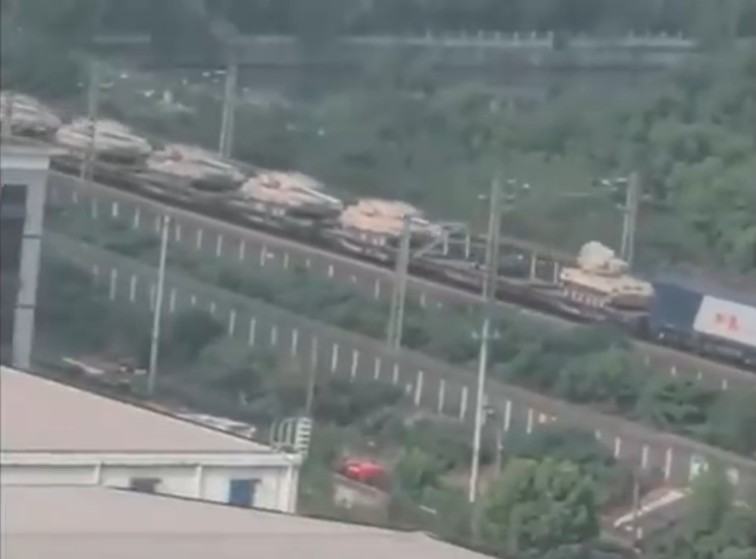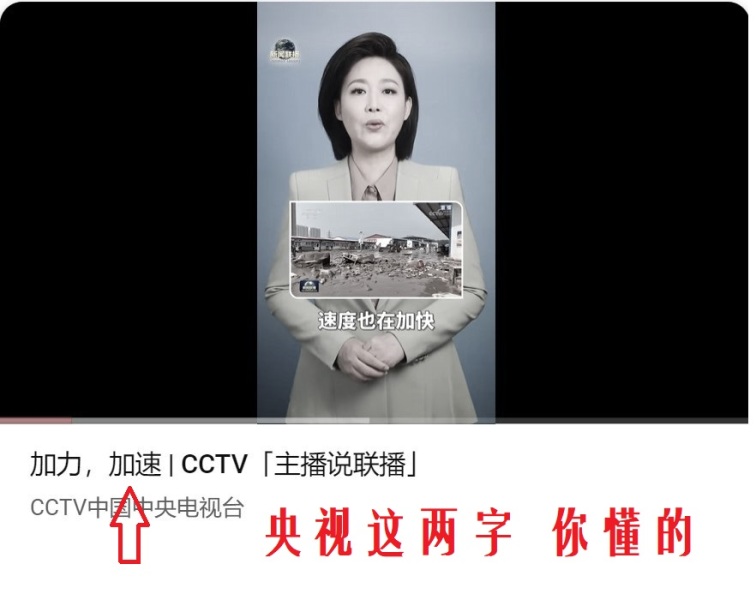The image shows a warning cone in Tiananmen Square. (Feng Li / Getty Images) Dajiyuan
[People News] The Fourth Plenary Session of the 20th Central Committee of the Communist Party of China wrapped up on the afternoon of the 23rd, presenting several noteworthy points for discussion.
The first notable point is the confirmation that Xi Jinping will only hold the title of 'Chairman of the Central Military Commission' moving forward, but without any real power.
Xi Jinping's future has consistently been a major focus of external scrutiny. By conventional reasoning, he is perceived as 'a puppet in governance' and 'reversing progress.' Throughout his more than ten years in power, he has made numerous empty promises but has failed to implement any policies that genuinely benefit the nation and its citizens, resulting in chaos in China's economy and people's livelihoods. This situation has worsened, particularly following the COVID-19 pandemic, as stringent lockdown measures have severely disrupted the national economy, leading to widespread hardship and escalating public discontent. This unrest has prompted university students nationwide to participate in the 'White Paper Revolution,' voicing demands such as 'Xi Jinping step down,' 'Communist Party step down,' 'lying flat,' 'kneeling in the temple of wealth forever,' 'the youth of ten no's,' and 'we are the last generation.' These expressions of despair have emerged during Xi Jinping's tenure, placing the Communist Party's governance under unprecedented strain. In response, the Party seems to believe that maintaining 'stability' is essential for preserving its rule. Consequently, it has disregarded the public's calls for leadership and governmental change, opting to retain Xi Jinping's position as Chairman of the Central Military Commission in a bid to navigate through this governance crisis.
The second point of interest is that, according to the communiqué from the meeting, the Central Military Commission (CMC) of the Communist Party of China (CPC) has only appointed Zhang Shengmin as vice chairman and has ratified the expulsion of He Weidong and 14 others from the CPC, which includes 10 central committee members and 4 alternate central committee members. Following the adjustments made at the Fourth Plenary Session, Xi Jinping remains the chairman of the CMC, Zhang Youxia continues as vice chairman, and Zhang Shengmin has been promoted to vice chairman of the CMC, with Liu Zhenli, the chief of staff of the CMC Joint Staff Department, being the only other member.
Prior to the Fourth Plenary Session, the 20th Central Military Commission was missing 3 members: the former vice chairman He Weidong, former Minister of National Defence Li Shangfu, and former director of the Political Work Department of the CMC Miao Hua, all of whom had previously been dismissed. However, during the Fourth Plenary Session, despite gathering so many individuals, the CPC only filled the position of Zhang Shengmin. Does this suggest that intense internal conflicts have prevented a compromise, leaving those vacancies unresolved? This indicates that factional struggles within the CPC consistently prioritise factional interests over national and public interests.
Additionally, the incomplete personnel of the CMC implies that a war in the Taiwan Strait is unlikely to be initiated in the near future.
The third point of concern is that the current holder of military power is Vice Chairman Zhang Youxia, who has formed an alliance with the elder faction, acting as the manipulator behind CMC Chairman Xi Jinping.
Although Xi Jinping (Xi Jinping) has not publicly declared his retirement from active leadership, he still holds the title of Chairman of the Central Military Commission. However, most of his military allies have been purged. Even if he remains in the position of Chairman, he is essentially a figurehead, merely a human-shaped standee. Whenever the central government requires his presence at an event, he appears with a notebook, reads from a script, and waves his hand. Recently, during his speech at the Global Women's Conference, CCTV did not even provide a prominent photo of him, leaving him powerless to change the situation.
The Chinese Communist Party's (CCP) People's Liberation Army Daily published a series of articles last December, stating that 'the leadership of the Party is the collective leadership of the Party Committee, not the leadership of one or two individuals.' While the Secretary is considered the 'head of the group,' he must not see himself as the 'master of the house' and should not treat the responsibility of overseeing the daily operations of the Party organisation as a power that supersedes that of other committee members.
This indicates that last year's People's Liberation Army Daily had already indirectly announced to the outside world that although Xi Jinping is the Chairman of the Military Commission and General Secretary of the CCP, he is not the 'master of the house' and must still adhere to the 'collective leadership of the Party Committee,' leaving even the 'one respected' without any face.
The fourth point of interest is that the meeting rejected Xi Jinping's assertion at the CCP's 20th National Congress that he 'will never promise to abandon the use of force to unify Taiwan.'
The communiqué from the Fourth Plenary Session emphasised the need to uphold and strengthen the centralised and unified leadership of the Party Central Committee, promote the development of socialist democracy and the rule of law, and fully engage the enthusiasm, initiative, and creativity of society in the construction of Chinese-style modernisation. It also aims to ensure the long-term prosperity and stability of Hong Kong and Macau, 'advance the peaceful development of cross-strait relations, and promote the great cause of national reunification.'
The content above suggests that 'peaceful development' will be the dominant theme in the coming years, effectively dismantling Xi Jinping's banner of 'military unification of Taiwan' and discarding his previously aggressive wolf warrior policy. This serves as evidence that Xi Jinping has lost significant power within the military. He is unable to uphold his own slogan of 'never promising to abandon military unification of Taiwan,' indicating a lack of strength to mount a counteroffensive. Previously, many believed that Xi Jinping wielded real power over the military, armed police, and national security systems; however, the outcomes of the Fourth Plenary Session have revealed that he has lost command over these three entities.
The fifth point of interest is the Minister of National Defence, Dong Jun, who is seen by outsiders as having a strong chance of entering the Military Commission but remains excluded from the Central Military Commission. Dong Jun may merely be a figurehead, likely due to his repeated public criticisms of Taiwan independence and his calls for military action against Taiwan. He assumed the role of Minister of National Defence in December 2023 and attended the Shangri-La Dialogue Forum in Singapore on June 2, 2024, where he made forceful statements threatening Taiwan, asserting that 'separatists will inevitably be crushed and meet their own destruction.'
Former Chinese Navy staff officer Yao Cheng and Chinese law professor Yuan Hongbing, who resides in Australia, have disclosed that the vast majority of personnel within the Chinese Communist Party's military are weary of war and refuse to engage in a conflict over the Taiwan Strait, with no one willing to perish in the Taiwan Strait and become an underwater ghost.
As a result, Dong Jun has served as the Minister of National Defence for nearly two years, yet he has not been able to join the Central Military Commission like several of his predecessors. This is due to the opposition from those who wield real military power, such as Zhang Youxia, against the initiation of war. Although Xi Jinping, who has become a mere figurehead, has been permitted to keep the title of 'Chairman of the Military Commission', this is just a symbolic role; he lacks real authority, cannot mobilise the military, and cannot influence personnel decisions.
The Chinese Communist Party has asserted that 'political power grows out of the barrel of a gun.' The one who controls military power is the true leader. Following the Tiananmen Square massacre of students in 1989, Deng Xiaoping's reputation suffered greatly. He promoted Jiang Zemin, refrained from taking the General Secretary position himself, and did not concurrently serve as President. However, Deng Xiaoping maintained military power and, relying solely on the title of 'Chairman of the Military Commission', was able to control the political landscape and keep Jiang Zemin in check. Xi Jinping no longer has this level of influence.
(First published by the People News) △











News magazine bootstrap themes!
I like this themes, fast loading and look profesional
Thank you Carlos!
You're welcome!
Please support me with give positive rating!
Yes Sure!